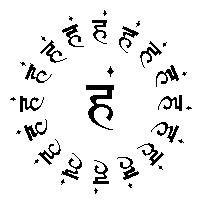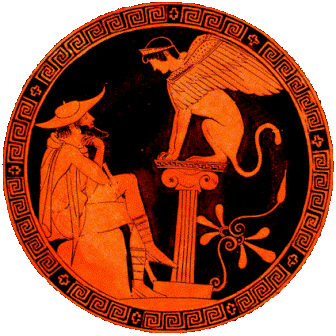Advanced workshops

Five tools of mastery
In these expert workshops, participants will get the tools to master:
1. de-hypnotization from the manipulative techniques used in advertising, news, and politics
2. reading, writing and chanting basic Sanskrit
3. the obstacles and dangers encountered on the spiritual path
4. the interpretation and creation of powerful metaphorical storytelling
5. optimization of their quality of life
1. De-hypnotizing Ourselves
“A good conjuror exploits the human compulsion to find patterns, and to impose them when they aren’t really there.”
~ Teller (1948-), stage magician
What do most salesmen, politicians, newsmen, magicians, scam artists, advertising executives, public relations people, lawyers, and charismatic religious leaders all have in common? They know how to condition our mind in order to make us buy or support products, services or ideologies that we neither need nor truly believe in.
In this workshop we will examine some of the most commonly used hypnotizing techniques used by skilled professionals to manipulate our internal imagery. By learning to recognize when these persuasion techniques are being used on us, and learning how to exercise our own mental “self-defense”, we become conscious, empowered citizens, free to make intelligent decisions in all aspects of our life.
2. Introduction to the Joy of Sanskrit
“Sanskrit is the unsurpassed zenith in the whole development of languages yet known to us.”
~ Wilhelm von Humboldt (1767-1835), German philosopher and linguist
Learning Sanskrit has a particular power and beauty, as alluded by the meaning of the word samskritam, “perfected.” According to spiritual tradition, Sanskrit was first revealed in the perfect mind of the first seers (rishis), and was subsequently developed and refined over millennia to become the perfect tool to elevate human consciousness to sublime heights.
Reading and chanting Sanskrit mantras is to experience the joy of feeling the eternal cosmic energy (prana) flowing in our consciousness through perfect combinations of sounds and breath, and to access the original language of yoga and meditation.
This workshop aims at awakening on the sheer joy of reading sacred texts such as the Bhagavad Gita in the original language, and chanting mantras and sacred hymns.
3. What to Expect on the Spiritual Path
"My people perish from a lack of knowledge."
~ The Bible, Hosea 4:6
A workshop designed to help us becoming aware of the challenges, rewards and pitfalls of the spiritual path, as well as understanding and redirecting the subconscious forces that drive us.
Through a review of the scriptures and spiritual literature, meditation and practical exercises, participants will learn:
• The role of the ego
• The veil of maya or cosmic delusion
• The agenda of the subconscious
• The danger of making assumptions
• The stages of spiritual development
4. Introduction to Creative Metaphorical Storytelling
“Many people believe that stories are told to put people to sleep. I tell mine to wake them up.”
~ Rabbi Nachman of Bratslav (1772-1810), founder of the Breslov Hasidic movement
We learn best—and change—from hearing stories that resonate deeply within us. The skilled teacher—be it Lord Jesus, Buddha, William Shakespeare, or your mystical grandmother, always uses a certain type of storytelling to help us find similarities between the hero’s journey and our own situation, thereby finding our inner resources to overcome the difficulties and roadblocks on our path. This particular type of stories are called “teaching stories” or “wisdom tales”, and have the ability to deliver a profound message directly to the soul of man, therefore bypassing the conscious defenses of the ego.
This is a creative writing and storytelling workshop for conscious change. Using the tools of meditation, relaxation, and contemplative reading, the participants will learn how to decipher the metaphorical meaning of stories embedded in Scriptures and traditional wisdom tales, as well as create and narrate teaching stories for various purposes—for education, for business, for family relationships, and for spiritual growth.
After mastering the basics, the students are encouraged to form their own creative writing and storytelling group.
5. Optimizing our Quality of Life
“The student gets one quarter of his knowledge from the teacher,
one quarter from his own intelligence,
a third quarter from interaction with other students,
and the fourth quarter in course of time.”
~ Yogic proverb
This 8-hour or week-end (16 hours) workshop gathers the essence of all of the aforementioned workshops to help us design the optimum quality-of-life plan.
Yogic teachings compare a human being to a water pot full of holes, explaining that before attempting to fill it with the waters of health and spirituality, it is necessary to identify the leaks, plug them, and avoid creating future ones.
Accordingly, the workshop follows a four-part process:
1. Understanding all the positive and negative factors affecting our physical, mental and spiritual well-being: diet, work, sex, exercise, disease, stress, emotions, the economy, religion, spiritual practices, politics, relationships, parenting, environment, housing, entertainment, culture, drugs, etc.
2. Auditing our current revenues and expenditures of energy using the two Ayurvedic typologies of the gunas (outer factors) and the doshas (body and mind constitution).
3. Learning various methodologies to stop wasting our life-force, optimize it according to our constitution and life circumstances, and reconnect with our authentic Self.
4. Developing practical ways to live an optimum quality life on a day-by-day basis.
The workshop uses tools drawn from Yoga, Ayurveda, neuroscience and varied holistic disciplines and features video presentations, role plays, Thai massage, relaxation and concentrations exercises, breathing, yoga postures, meditation, chanting, storytelling, and visualization.





